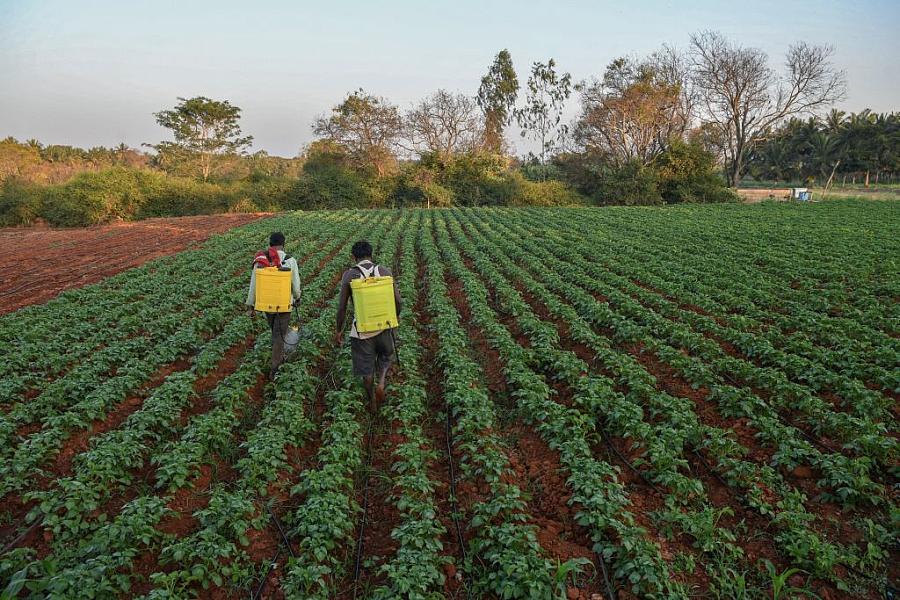Are farmworkers aware of the threat posed by pesticides to their health?

(Photo by Manjunath Kiran/AFP via Getty Images)
Migrant and seasonal farmworkers in the U.S. are at high risk of pesticide exposure, whether it’s from residue on crops, drift from nearby fields or, as a recent case in Central Illinois shows, from coming into contact with direct aerial spray.
Such exposures pose an important health risk for workers. The immediate effects can include skin rashes, nausea and vomiting. Several studies have found that — depending on the chemical — prolonged exposure may increase the risk of long-term health issues such as infertility problems, asthma and neurodegenerative diseases, as well as cancer and leukemias.
Yet tracking and understanding farmworkers’ exposure to pesticides is very difficult in many states. Georgia, for example, does not require health care providers to report pesticide exposure to state authorities. For many farmworkers, this would be their first contact after suffering an exposure. Without this information, it’s unclear how often workers are sprayed.
Also, some states (including Georgia, Texas and Indiana) do not require employers to pay workers compensation to migrant and seasonal farmworkers. Beyond the financial burden this places on injured workers, it also means any instances of exposure will not appear in workers’ comp data.
So, how can we show the dangers pesticides pose to farmworkers? Even if there’s plenty of research on the possible health risks, our goal as reporters is to put a name and face to these dangers; to bring the story closer to audiences so they can better grasp a complicated, abstract topic that deeply affects workers.
With this in mind, our project for the 2022 National Fellowship will try to measure and analyze some of the pesticides and chemical compounds farmworkers are exposed to. Alongside investigators, we’ll give contextual information on the possible short-term and long-term repercussions that this exposure could have on their health depending on the type of chemical.
Obviously, this will not be a scientific study and it doesn’t aim to be one. But researchers we’ve consulted agreed it’s a very powerful way of visualizing the oftentimes invisible threat of pesticide exposure to farmworkers.
Beyond what the data can show, our multimedia reporting will tell personal, intimate stories of the farmworkers we follow to show some of the hardships they face. We feel audiences can better connect and relate to these kinds of stories.
We’re currently undertaking the difficult task of finding farmworkers willing to be interviewed. From past experiences at Univision News and The Midwest Center for Investigative Reporting, farmworkers are very vulnerable and understandably afraid to talk. We’ll have to protect their identities and make sure their livelihoods aren’t affected.
It’s a daunting task. But our hope is that we can develop trust with farmworkers and tell their stories in a responsible and empathetic manner, so that we can also raise awareness nationally.


